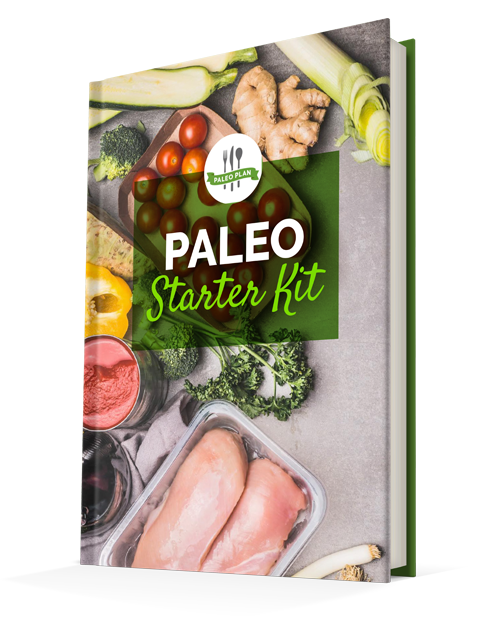Below is a question we get often about bacon and other processed foods. I’ve been doing these “Is x food Paleo” posts lately because it seems there’s still a lot of confusion about what is and what is not Paleo. Our ebook and our Complete Idiot’s Guide to Eating Paleo book both go into more detail about other debatable foods, in case you want more info. Ok, here goes bacon… and a couple other foods.
 Q: I just finished reading The Paleo Diet book by Loren Cordain, and perhaps I jumped the gun on joining this site and paying for the meal plans? The meal plan has coconut oil, almond flour, bacon and ham. In his book, the Dr suggests these shouldn’t be used (bacon and ham) and there is no mention of almond flour.
Q: I just finished reading The Paleo Diet book by Loren Cordain, and perhaps I jumped the gun on joining this site and paying for the meal plans? The meal plan has coconut oil, almond flour, bacon and ham. In his book, the Dr suggests these shouldn’t be used (bacon and ham) and there is no mention of almond flour.
Should I be following the meal plans in his book at the beginning of my journey? I will also add that I don’t know if I can as he talks about crab legs and some fish that I just don’t have access to or the budget for.
I’d appreciate any insight you have. Thanks much!
Michele
________________________________________________________________
A:
Hi Michele,
Since Cordain’s first book came out, things have changed a bit. The diet has evolved, just as it has been doing for millions of years. He was against coconut oil because of the saturated fat, but it turns out saturated fat isn’t bad and especially not when you’re eating a Paleo diet along with it. He’s since rescinded his statements about coconut oil and his previous thoughts on saturated fat for the most part. He still isn’t a big fan of bacon or processed meats, and it’s mostly because he doesn’t like the fatty acid profile of conventional meats (meats that aren’t grass-fed or pasture raised) and he assumes that most people are going to be buying conventional meats. I don’t like those meats, either, and always encourage people to buy their meat from a health food store with reputable meat or from a local rancher. The fatty acid profile, as well as the overall nutritional value of the meat is superior that way.
He also doesn’t like bacon because it doesn’t fit in with his macronutrient ratio he’d like us all to follow, which I don’t agree with. Hunter gatherers have been eating a variety of macronutrient ratios throughout time, and I think that higher fat/moderate protein/low carb can work just as well as moderate fat/moderate protein/moderate carb or whatever. You just have to be eating the right foods – not necessarily in the proper amounts, and everyone’s needs are different. He also doesn’t like bacon and ham because when they’re conventional they usually have added nitrates/nitrites, preservatives, corn syrup, and other crappy ingredients in them. I agree with him there and again, I always suggest that people buy high quality meats that just contain meat and spices.
As for the nitrate/nitrite exposure, all smoked meats will contain them, even the ones that don’t have “nitrite” written in the ingredient list. It’s a natural byproduct of the smoking process. The problem with nitrates and nitrites is that they’ve been linked with stomach cancer. But Chris Kresser pointed out recently that we consume more nitrites from our own saliva than we would from a whole stand full of hotdogs. Chew on that for a minute.
So are bacon and other processed meats like ham Paleo? I think if the meat is from an animal that was raised naturally and it contains very few other ingredients – no added nitrates/nitrites, no corn or wheat products, and no unnatural preservatives – it’s Paleo.
As for almond flour, Cordain does recommend eating almonds and almond flour is simply ground up almonds. I don’t suggest that people eat too much of the stuff – or too many nuts in general – because when they’re not properly prepared (soaked, etc.), they contain a lot of the anti-nutrients we’re trying to avoid by not eating grains and legumes. So we don’t use almond flour very often in the meal plan.
Should you follow his meal plans or ours? Ours! Just kidding. That’s totally up to you. We try to make our meal plans do-able by everyone, which involves using affordable, seasonal ingredients and using leftovers almost every day so you never waste food and you’re not always in the kitchen. Maybe give our meal plans a shot and see how you feel. Good luck!
